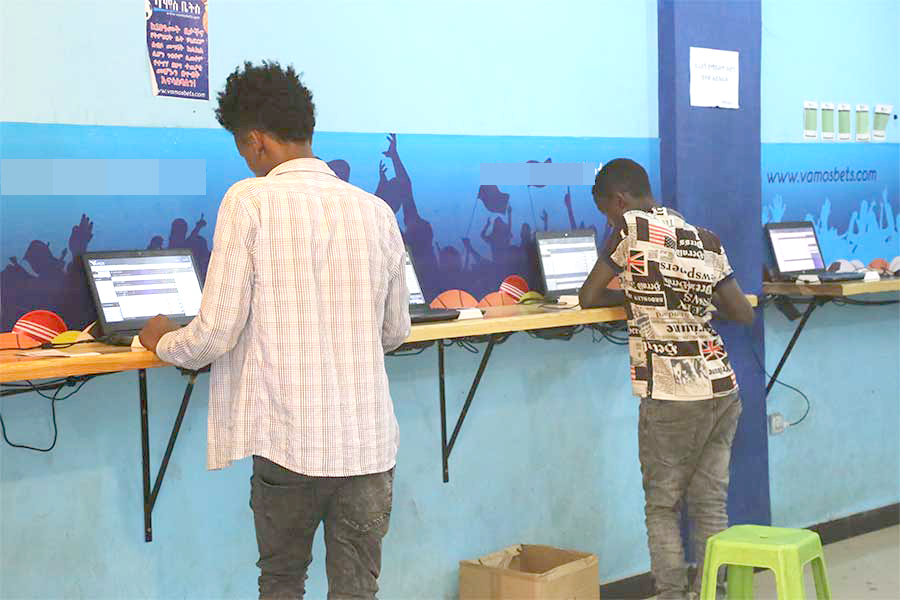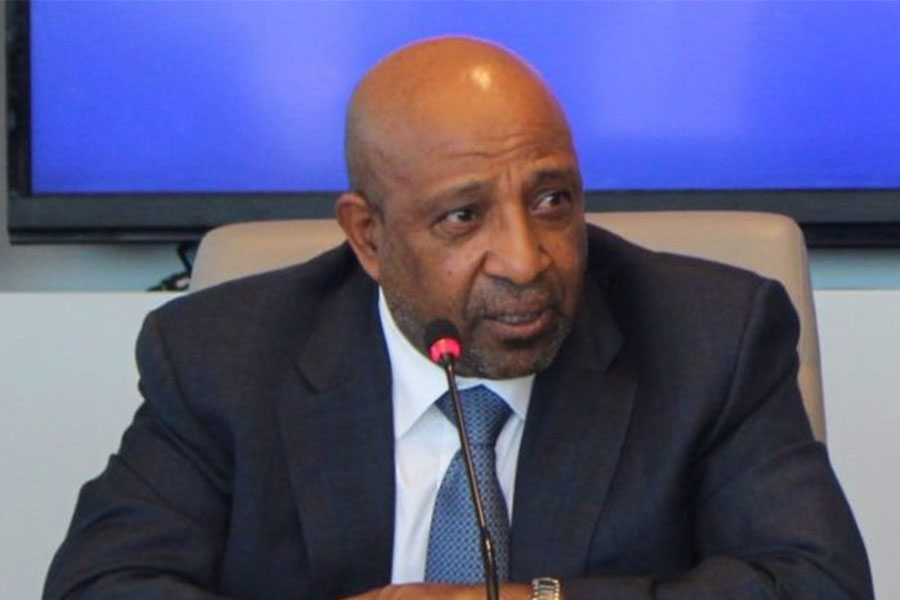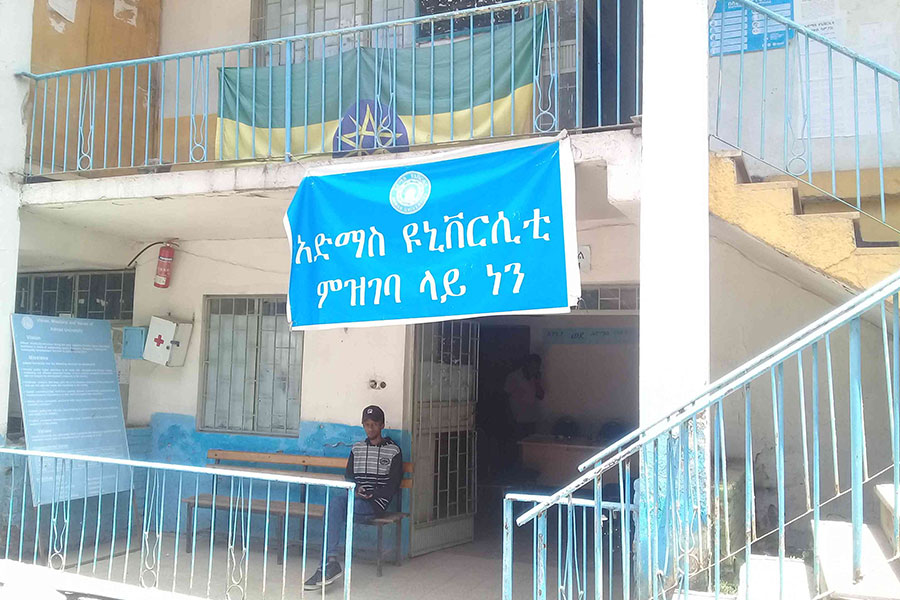
Fortune News | Jun 29,2025
Mar 16 , 2024
By AKSAH ITALO ( FORTUNE STAFF WRITER )
Ethiopia's higher education system stands on the cusp of a major transformation. Stringent standards are now mandated for new accreditations and program approvals, setting a precedent for rigorous scrutiny and adherence to benchmarks of quality. Institutions must submit self-evaluation reports, encompassing annual quality assurance audits, substantiation of student competence, and adherence to program standards.
Signed by Minister of Education Berhanu Nega (Prof), this approach aims to ensure not only academic rigour but also institutional accountability. At the helm of this journey are officials from the Federal Education & Training Authority, tasked with overseeing 338 private colleges and over 55 public universities.
Kefyalew Adnew, head of Inspection & Control at the Authority, harbours high expectations on the impact of accreditation standards and the compatibility of education services with international norms. He believes robust standards will enhance the credibility of institutions and elevate the overall quality of education in the country.
"It'll benefit both students and institutions," he said.
Nearly 1,000 courses across 50 institutions faced denials for renewals due to infractions; these ranged from exceeding approved student capacities and inadequate facilities to admitting students who fell short of the requisite academic standards.
"Most institutions did not meet the existing standards," he said.
The recent overhaul of regulations in higher education was, in part, prompted by the failure rate of approximately 40pc of prospective graduates on university exit examinations conducted for the first time last year. This revelation served as a wake-up call, igniting a fervent call for reform within the sector.
In response to these challenges, Addis Gizaw, director of the Authority's IT department, disclosed that three projects were underway to develop digital accreditation systems that aim to mitigate the risk of counterfeit education certificates and streamline administrative processes. The ramifications of lax accreditation standards were further underscored by recent events at the Commercial Bank of Ethiopia (CBE), which terminated nearly 200 staff members upon uncovering falsified education certificates.
The directive introduces new organisational structures, such as an accreditation council within the Authority. It is entrusted with formulating an action plan for the ongoing assessment and evaluation of institutions, ensuring adherence to established standards.
As the accreditation process gears up, medical colleges stand at the forefront.
Ahmedin Nurhussien (MD), vice dean of Sante Medical College, underscores the profound benefits, particularly for students aspiring to secure scholarships. A decade-old private institution, Sante Medical College boasts over 700 students with disciplines spanning from laboratory technology to medicine. Ahmedin highlights how accreditation streamlines the process of taking examinations such as the Universal Examination for Medical Students (USMLE).
"Its benefits can't be overstated," he said.
For Alemayehu Tekelemariam (PhD), who has been advocating for a national accreditation scheme for the past three decades, this represents a significant step forward in ensuring the quality and competitiveness of Ethiopia's higher education sector. Alemayehu expresses his optimism about the Authority's trajectory, affirming that it is indeed moving in the right direction. Looking ahead, he anticipates that most private colleges will embark on self-assessments in preparation.
"This will be a true test of their competence," he said.
While stringent standards are essential for upholding academic integrity, it is imperative to ensure that these measures are implemented inclusively, according to stakeholders, taking into account the diverse contexts and challenges faced by institutions across the country.
Damot Anteneh (PhD), chairman of the teachers' association at Debremarqos City in Amhara Regional State, voices concerns regarding the feasibility of these stringent standards. While endorsing the importance of accreditation in principle, Damot expresses scepticism about the immediate applicability of stringent standards while most universities in his region are wrestling with conflict. He believes that several universities may struggle to meet these requirements, given their current circumstances.
"It's a bit overambitious," he said.
PUBLISHED ON
Mar 16,2024 [ VOL
24 , NO
1246]

Fortune News | Jun 29,2025

Radar | Oct 28,2023

Fortune News | Dec 10,2022

Fortune News | May 23,2020

Agenda | Dec 10,2022

Radar | Oct 17,2020

Fortune News | Apr 19,2025

Agenda | May 21,2022

Radar | Jun 21,2025

Viewpoints | Sep 19,2020

Dec 22 , 2024 . By TIZITA SHEWAFERAW
Charged with transforming colossal state-owned enterprises into modern and competitiv...

Aug 18 , 2024 . By AKSAH ITALO
Although predictable Yonas Zerihun's job in the ride-hailing service is not immune to...

Jul 28 , 2024 . By TIZITA SHEWAFERAW
Unhabitual, perhaps too many, Samuel Gebreyohannes, 38, used to occasionally enjoy a couple of beers at breakfast. However, he recently swit...

Jul 13 , 2024 . By AKSAH ITALO
Investors who rely on tractors, trucks, and field vehicles for commuting, transporting commodities, and f...

Oct 25 , 2025
The regulatory machinery is on overdrive. In only two years, no fewer than 35 new pro...

Oct 18 , 2025
The political establishment, notably the ruling party and its top brass, has become p...

Oct 11 , 2025
Ladislas Farago, a roving Associated Press (AP) correspondent, arrived in Ethiopia in...

Oct 4 , 2025
Eyob Tekalegn (PhD) had been in the Governor's chair for only weeks when, on Septembe...